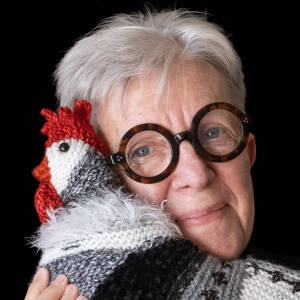Knotted and contorted
The most dramatic part of the vigil happened after I left last night. I had to leave because after half an hour of standing, my back forces me to stop; also I was meeting NannaK and H for dinner. After I left, as recorded by my friend Dan Shea, the veterans staged a ceremonial burning of their military uniforms, chanting, “Remember Aaron Bushnell. He’s not alone.”
I also want to say, partly in response to some comments yesterday, that I would be surprised if Airman Aaron Bushnell thought he could change the minds of policy-makers in the USA. I think he must have known that to be impossible, and I imagine he wanted to influence other hearts and minds; to wake up those in this country who are not engaged in protesting the murder of a people, who look the other way and go on with life as “normal.” I’m sure many are, as I was, ignorant of the history of the conflict, ignorant of the history of suffering in Palestine.
Before October 7, I had only a vague notion of how knotted and contorted relations have been between Palestine and Israel since the end of WWII. I had not progressed far from the movie Exodus, over which I wept as a child, and Night, by Elie Wiesel. I have given myself an intensive course in Palestinian history, literature, and culture since October. This week I’m reading a riveting memoir called In My Mother’s Footsteps, by Mona Hajjar Halaby, whose mother and father were Palestinian middle class, expelled in the Nakba of 1948.
Halaby visited Palestine in 2007 for a year of teaching in Ramallah, and she juxtaposes a journal of her daily life with letters from her mother, describing life in Palestine before 1948. It is as shocking as it is vivid and grounded in fragrance, taste, and touch. As Halaby takes the bus from Tel Aviv to Ramallah, she writes, “I looked out the window at the yellow Israeli license-plate cars rushing off to work in the morning commute. Did they know that their roads are laced with blood and tears? Did they know that every inch of Palestinian land has a story to tell, a story that is conveniently muted or erased?”

Comments
Sign in or get an account to comment.


